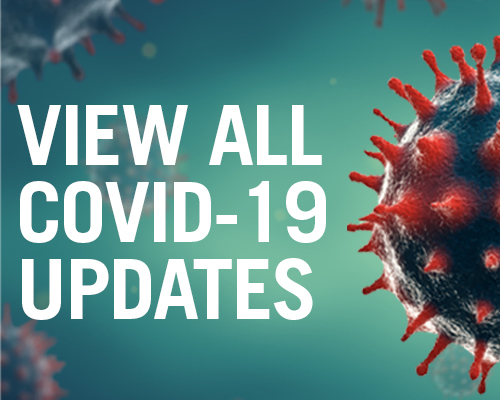Blood Pressure Insights in COVID-19: Watch for Drops and RAAS Red Flags
Separate studies showed how hypertension among infected patients influences adverse outcomes.

COVID-19 may affect hypertensive patients in a variety of ways, including being a trigger for extreme drops in blood pressure that put them at risk for acute kidney injury (AKI), according to data presented in a poster session during the virtual Hypertension 2020 Scientific Sessions. A second study from the meeting suggests that while use of ACE inhibitors and ARBs is associated with increased mortality in COVID-19, need for the medications may in fact be a marker for patients who have a greater underlying burden of chronic health conditions and CV risk.
Paolo Manunta, MD, PhD (San Raffaele University, Milan, Italy), and colleagues studied 392 consecutive COVID-19 patients hospitalized at their institution in March and April 2020. More than half of the patients, who averaged 67 years of age, had hypertension.
In the analysis, mean BP at presentation was inversely related to risk of AKI. Compared with patients with no hypertension, those with a hypertension history who became hypotensive had about a fivefold increased risk of AKI after adjustment for age and respiratory distress (P = 0.044). Similarly, AKI was increased ninefold in those with severe hypotension (P = 0.021) and fourfold in those with mild hypotension (P = 0.009).

Death during hospitalization also was increased in those with hypotension. Regardless of age, comorbid diseases, and COVID-19 severity, having mild hypotension on arrival at the emergency department was associated with a doubling of in-hospital mortality.
“Early reduction of antihypertensive therapy if blood pressure is lower than 120/70 may decrease AKI development and mortality in COVID-19,” Manunta and colleagues conclude.
Speaking on behalf of the American Heart Association’s council on hypertension, Karen A. Griffin, MD (Loyola University Medical Center, Maywood, IL), said given the multisystem disease processes associated with symptomatic COVID-19 infection, it is not surprising that previously hypertensive patients can suddenly become hypotensive and develop AKI.
“Under these circumstances antihypertensive medications, including ACE-inhibitors and ARBs, need to be stopped in an attempt to prevent worsening of the acute kidney injury,” she said in an email.
ACE/ARB Use and Mortality
Early in the COVID-19 pandemic, there was speculation that use of renin-angiotensin-aldosterone system (RAAS) inhibitors might worsen prognosis in those with the virus. In March, the American College of Cardiology, American Heart Association, and the Heart Failure Society of America issued a statement advising that patients not stop taking ACE inhibitors or ARBs unless directed to do so by their physician. At the time, the societies also said more data were needed to address the issue. Since then, a study found that not being on antihypertensive medication increased the risk of mortality among hypertensive COVID-19 patients in Wuhan, China, and most recently, the BRACE-CORONA randomized controlled trial found no increased risk of death or prolonged length of stay in hospitalized patients with COVID-19 who continued on their previously prescribed ACE inhibitors or ARBs compared with those who stopped.
A second poster presentation at Hypertension 2020 explored this evolving topic from a new angle. Here, Baher Al-Abbasi, MD (University of Miami/JFK Medical Center, Atlantis, FL), and colleagues noted increased in-hospital mortality in 172 COVID-19 patients taking ACE inhibitors or ARBs compared with those not taking the drugs (33% vs 13%; P = 0.003), as well as increased likelihood of admission to the ICU (28% vs 13%; P = 0.038). However, in a multivariable analysis accounting for age, obesity, hypertension, diabetes, and chronic kidney disease, there were no statistically significant differences in in-hospital mortality rates by RAAS-inhibitor use (P = 0.8372).
To TCTMD, Griffin said further studies are still required to determine if there is a true cause-and-effect relationship between ACE inhibitors or ARBs and mortality in COVID-19.
“In the meantime, it remains prudent to evaluate the benefits and risks associated with ACE-I or ARB therapy in patients with CV disease risk before making any changes to their treatment in the absence of hypotension,” she added.
A third study, also presented as a poster during the meeting, adds additional confirmation via a large, multinational analysis that hypertension is the most common comorbidity in patients hospitalized with COVID-19. The pooled analysis of more than 11,000 patients from eight countries found a rate of hypertension of 42%, followed by a 23% rate of diabetes. Less prevalent comorbidities included non-hypertensive CV disease, chronic kidney disease, stroke, and COPD.
L.A. McKeown is a Senior Medical Journalist for TCTMD, the Section Editor of CV Team Forum, and Senior Medical…
Read Full BioSources
Manunta P. Blood pressure deregulation and renal function are main determinants of COVID-19 mortality. Presented at: Hypertension 2020. September 10, 2020.
Al-Abbasi B. COVID-19 and the use of angiotensin-converting enzyme inhibitors and receptor blockers: real world experience. Presented at: Hypertension 2020. September 10, 2020.
Venkata VRS. COVID-19 and hypertension: pooled analysis of observational studies. Presented at: Hypertension 2020. September 10, 2020.
Disclosures
- Manunta, Al-Abbasi, Venkata, and Griffin report no relevant conflicts of interest.


Comments